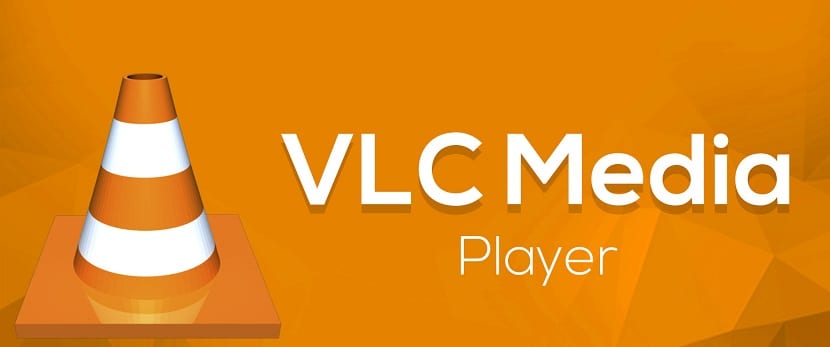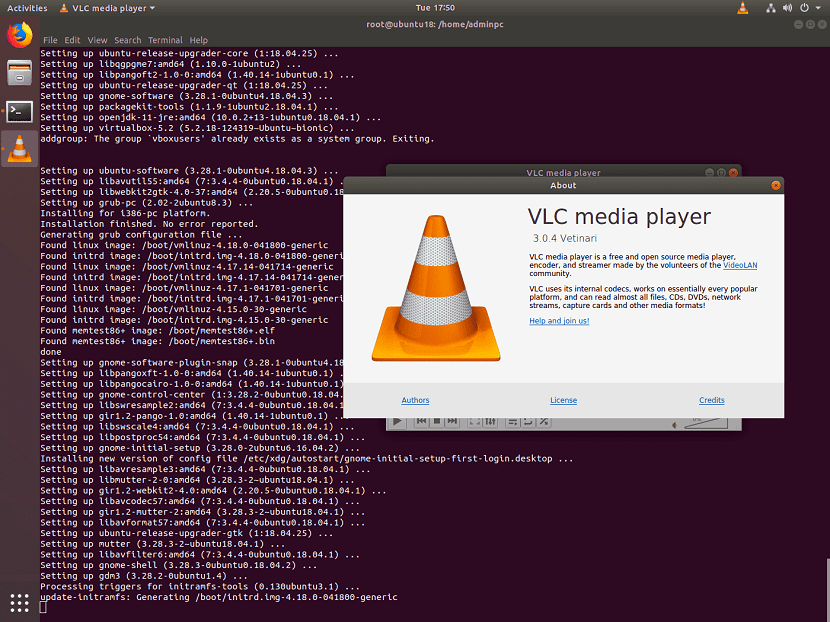
Some days ago the new version of the media player VLC Player was released, reaching this to its new version 3.0.4 with which it solves some errors and adds new features to this player.
For those readers who still do not know the VLC Media Player I can tell you that this is a media player, frame and encoder which can play files, network streams, DVDs, Audio CDs, Blu-Rays, capture devices and displays.
Best of all, the VLC can play most audio and video codecs and formats (MPEG 1/2/4, H264, VC-1, DivX, WMV, Vorbis, AC3, AAC, MKV, etc.) and can also be used to convert different formats or stream over the network.
What's new in VLC 3.0.4
The new version of VLC Media Player 3.0.4 is the latest bug fix update. The version fixes several minor issues, improves usability on the Wayland display server and adds support for decoding AV1 streams.
Within of the corrected errors and the new features that we can highlight, we find the following:
- Added support for AV1 stream decoding
- Added support for 44.1kHz DTS passthrough
- Low fps files should now play smoothly
- Performance was improved on OpenGL DVD subtitles
- Fixed tool tip view under Wayland
- Chromecast now supports the VLC web interface
- Fix for "search" in streams containing WebVTT subtitles
- Fixed MediaCodec rotation manipulation
- Fixed color space of JPEG, PNG and screen inputs
- Fixes for playing incomplete RAR files, MKV, AVI, MP4, etc.
- Various Direct3D11 and DirectSound fixes
How to install VLC Media Player 3.0.4 on Ubuntu 18.04 LTS and derivatives?
Si want to install this media player on their systems, we have several methods to be able to obtain this software in our system.
The first and easiest method of all is to download and install the application directly from the Ubuntu software center., in which it is enough to type the word "vlc”And install the application.
The second method we have to install the application from the official Ubuntu repositories is With the help of a terminal which we must open with Ctrl + Alt + T and execute the following commands in it:
sudo apt-get update sudo apt-get install vlc browser-plugin-vlc

These first two methods are the simplest, but they are not recommended. This is because the packages within the Ubuntu repositories are not usually updated when a new version is released.
Installing VLC Media Player 3.0.4 from Snap
Another method we have to install VLC on our system and also obtain the latest stable version, is with the help of Snap packages.
For this it is necessary that we have the support added to the system to be able to install applications of this technology.
We just have to type the following command in the terminal:
sudo snap install vlc
If they want to install the candidate version of the program they do it with:
sudo snap install vlc --candidate
Finally, if you want to install the beta version of the program you must type:
sudo snap install vlc --beta
If you installed the application from Snap and want to update to the new version, you just have to type:
sudo snap refresh vlc
Installing VLC Media Player 3.0.4 from Flatpak
Finally, the last method we have to obtain this application in our system is with the help of Flatpak packages.
With which If we have this technology added to our system and we have the Gnome software center, we can install from it.
O from the terminal with the following command:
flatpak install --user https://flathub.org/repo/appstream/org.videolan.VLC.flatpakref
And if they had already installed and want to update they must type:
flatpak --user update org.videolan.VLC
Uninstalling VLC
To remove this software completely from your computers, you only have to type the following in a terminal, depending on the installation method.
From the Ubuntu repositories:
sudo apt remove vlc*
From Flatpak:
flatpak uninstall org.videolan.VLC
From Snap:
sudo snap remove vlc
Buenisimo!
Question is it the same to install it by the 'default software that Linux brings / than by the terminal repositories ???
This is
Good morning, from the software center it is not going well and I did it by snap for the moment it is going well.
Thank you